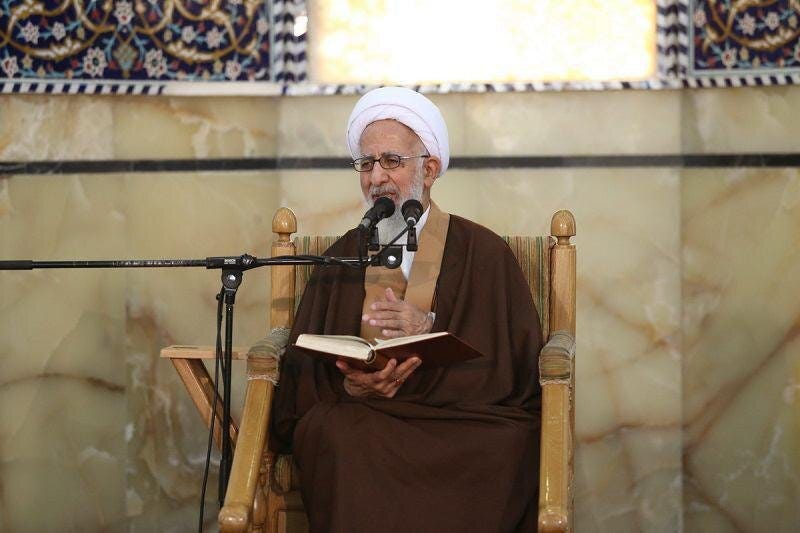Pride and the Rot Within: A Reflection on Moral Corruption
How Grand Ayatollah Javadi Amoli’s insight on arrogance illuminates the Quranic and Ahl al-Bayt view of corruption
In one of his illuminating discourses, Grand Ayatollah Abdollah Javadi Amoli described arrogance as “the malignant gland of society” — the inner disease from which corruption spreads. He explained that true worship, particularly the act of placing one’s forehead upon the soil in prostration, is meant to crush this pride and humble the ego before God.
This insight leads us into a timeless truth: arrogance (kibr) is not merely a personal vice — it is the spiritual seed from which societal decay blossoms.
1. Pride as the Seed of Corruption
The Quran reveals that arrogance and corruption are intimately intertwined:
“And We decreed to the Children of Israel in the Scripture: You will surely cause corruption on the earth twice, and you will surely become arrogant with great arrogance.”
— (Quran, Surah al-Isrāʾ, Chapter 17, The Night Journey, Verse 4)
Here, arrogance (“becoming exalted”) is directly tied to causing corruption (fasād) — showing that the ego’s inflation always leads to moral collapse.
Another verse warns:
“And do not walk upon the earth exultantly. Indeed, you will never tear the earth [apart], nor reach the mountains in height.”
— (Quran, Surah al-Isrāʾ, Chapter 17, The Night Journey, Verse 37)
This verse rebukes arrogance as delusional — a blindness to one’s true fragility.
Elsewhere, the Quran speaks of the arrogant end:
“And it will be said, ‘Enter the gates of Hell to abide therein; how evil is the abode of the arrogant!’”
— (Quran, Surah az-Zumar, Chapter 39, The Groups, Verse 72)
Thus, arrogance is not simply moral failure — it is a barrier to Paradise and a cause of divine rejection.
Grand Ayatollah Javadi Amoli calls it a malignant gland because, like cancer, it spreads: from personal vanity to political tyranny, from moral blindness to social corruption.
2. The Ahl al-Bayt on Arrogance
The Imams of the Ahl al-Bayt (A) have spoken extensively about this disease:
Imam ʿAlī ibn Abī Ṭālib (A) said:
“Two things destroy mankind: fear of poverty and seeking superiority through pride.” — (Nahj al-Balāghah, Saying 373)
He also said:
“He who considers himself great in his own eyes is small before Allah.” — (Ghurar al-Hikam, 8469)
Imam Jaʿfar al-Ṣādiq (A) warned:
“He who possesses even a mustard seed of arrogance in his heart will not enter Paradise.” — (Al-Kāfī, vol. 2, p. 310)
From these sayings, arrogance is not just a social issue — it is a spiritual poison. It blinds a person to truth, blocks repentance, and leads to destruction both in this world and the Hereafter.
3. From Inner Arrogance to Outer Disorder
When Grand Ayatollah Javadi Amoli speaks of pride as a malignant gland, he means that the corruption seen in governments, communities, or families begins as an inner arrogance — a refusal to bow.
“When a person places their nose on the soil, it is an act of humility — a declaration that all greatness belongs to Allah.”
As the Quran says:
“And do not turn your face away from people in contempt, nor walk in pride upon the earth; indeed, Allah does not like the arrogant and boastful.”
— (Quran, Surah Luqmān, Chapter 31, Luqman, Verse 18)
The verse perfectly mirrors the Ayatollah’s teaching: arrogance distances us from people and from God; humility restores harmony.
When arrogance grows unchecked, it infects leadership, corrupts wealth, and fuels injustice — the “corruption in the land” (fasād fil-ard) condemned throughout the Quran.
4. The Cure: Humility and Self-Awareness
a) Humility before Allah
“And the servants of the Most Merciful are those who walk upon the earth humbly, and when the ignorant address them harshly, they say, ‘Peace.’”
— (Quran, Surah al-Furqān, Chapter 25, The Criterion, Verse 63)
True humility is not weakness — it is strength grounded in truth. It allows the believer to remain dignified and peaceful, even when provoked.
b) Recognition of the Self’s Limits
The Imams warn us to beware of self-conceit (ʿujb). Imam ʿAlī (A) said:
“Beware of self-admiration, for it is the most reliable companion of ignorance.” — (Nahj al-Balāghah, Saying 167)
c) Service and Justice
Prostration — the act of putting one’s forehead to the ground — is both symbolic and transformative. It teaches us that all greatness belongs to Allah alone. From this humility springs justice, equality, and mercy.
d) Constant Self-Examination
As the Ahl al-Bayt (A) teach, arrogance blinds us to our own faults. Humility, by contrast, opens the mirror of self-correction.
5. A Path Forward
Each believer must ask:
Do I feel superior because of knowledge, faith, lineage, or wealth?
Do I dismiss others’ opinions out of pride?
Do I forget that my beginning was dust and my end will return to dust?
To heal a corrupt society, the soul must first be humbled. This is why Islam teaches humility not just as a virtue, but as the foundation of reform.
“Do not walk upon the earth exultantly; indeed, Allah does not love the self-deluded and boastful.”
— (Quran, Surah al-Ḥadīd, Chapter 57, The Iron, Verse 23)
Conclusion
Arrogance is the root of corruption, as the Quran, the Ahl al-Bayt (A), and Grand Ayatollah Javadi Amoli all affirm. It is the same sin that caused Iblīs to fall — refusing to bow to Adam out of pride (Quran, Surah al-Aʿrāf, Chapter 7, The Heights, Verse 12).
To uproot corruption, we must uproot pride — within ourselves first. Every prostration is a cure, every act of humility an act of cleansing.
Let us purify our hearts, walk humbly upon the earth, and remember that greatness belongs only to Allah, the Most High (Al-ʿAliyy al-ʿAzīm).
Reference: ABNA


